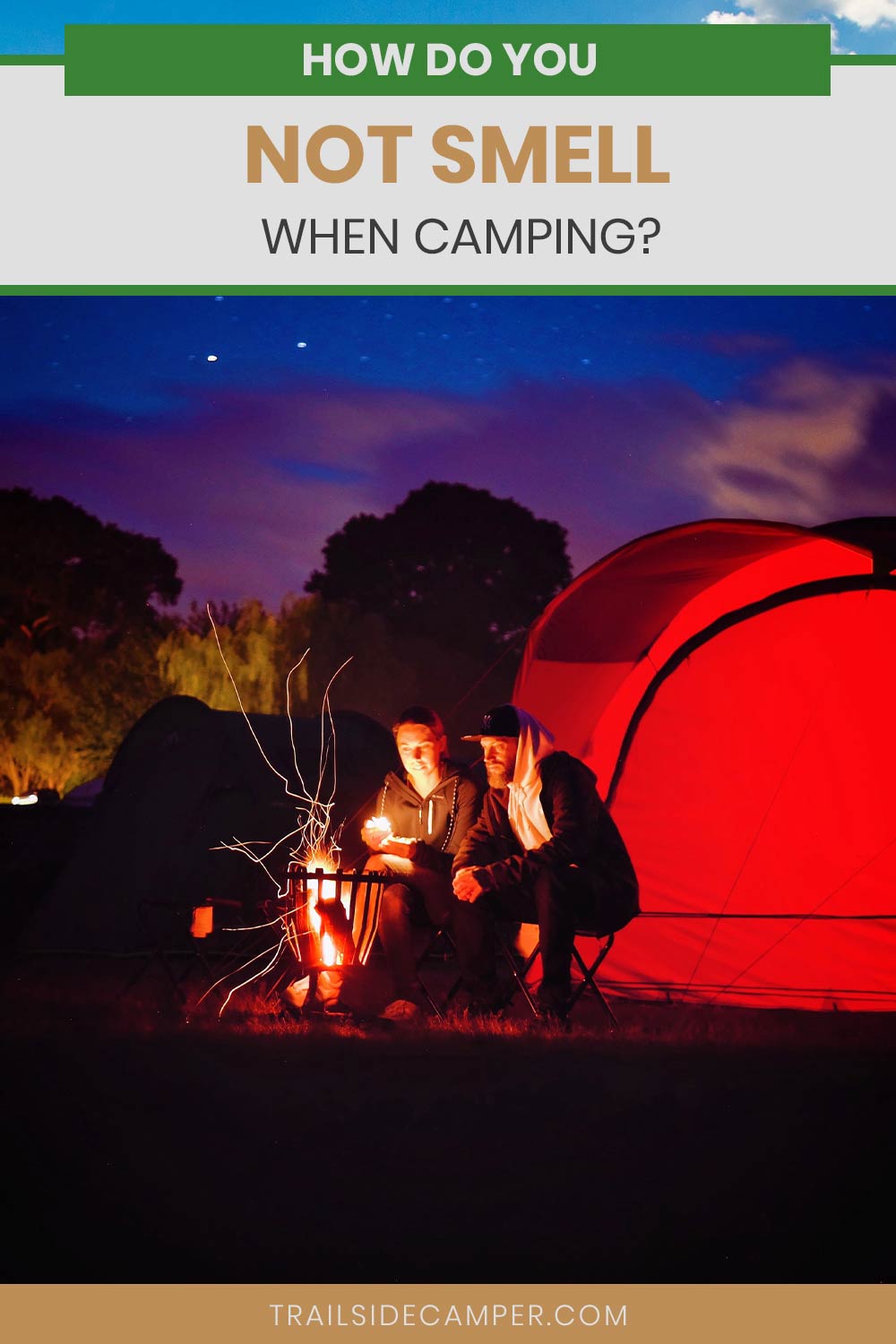Going camping is a wonderful approach to exploring nature and unwinding from daily life. However, keeping smelling fancy and fresh while camping can also be challenging. You must be aware of some crucial advice if you want to avoid smelling unpleasant when camping.
Use dry absorbent materials to control body odor, such as wool and moisture-wicking clothing. You can also use unscented baby wipes and antibacterial wipes to remove sweat and bacteria.
You can also utilize natural therapies like water, soap, and deodorant. You won’t have to worry about smelling unpleasant when camping if you have the appropriate information!
How Do You Naturally Absorb Smells?
Fun fact: Sweat doesn’t smell bad. The pungent odor is caused by skin bacteria that are completely safe, which devour the fatty waste products or aliphatic acids that are excreted with sweat in your groin and armpits.
Scientists call these aliphatic acids “goat acids,” and as these bacteria consume, reproduce, and break down, odor develops.
Another fun anecdote, according to tales from earlier times when people didn’t use soap, bacterial populations grew to such a size that they could be seen with the naked eye as tiny nodules hanging from axilla hairs.
In addition, all of those oils building up on your body can also trap in outside odors, such as campfire smoke and others.
What Kills Odor in Your Equipment?
The best way to prevent odors in your equipment is to stay on top of your cleaning routine. You can take steps before, during, and after your camping excursion.
Firstly, if you keep yourself clean, you will transfer fewer oils and bacteria to your equipment, thus transferring fewer smells. If you want to protect your equipment inside your bag, resealable plastic bags can act as a sufficient barrier.
Finally, make sure you are packing your equipment as dry as possible. Moisture trapped in a tight dark, airless space can turn stagnant and stinky quickly.
After your adventure, when resetting your equipment, leave everything out to dry sufficiently, and sprinkle with baking soda to absorb smells and odors. The goal is dry, dry, dry! Make sure all of your equipment is clean and dry before you store it.
Should You Carry Deodorant on a Camping Trip?
It depends on the kind of deodorant. You aren’t going to want to use any sweet-smelling or artificially scented deodorant. These can attract insects and other wildlife. You’d hate to be the guy that brings a bear in with your body spray.
Unscented deodorants will be your best option. There are other natural options as well. Using talcum powder on your more sweaty parts can help you stay dry and give those bacteria less to eat.
If you are super worried about smells, you can use ginger or even lemon juice to naturally mask some of those smells.
Though with lemon juice and ginger, you still might smell like a snack to certain animals. If you can stand the smell, it might be better for everyone involved to power through it.
What Materials Help You Stop Smelling?
So we’ve decided to forgo the deodorant. Is there anything else you can do to avoid the smell? Well, indeed, there is. Natural materials are a wonderful option for helping to beat the smell. Wool, for instance, can be thin and comfortable.
Also, it has antimicrobial properties that will help keep the stinky bacteria at bay. Synthetic materials are also going to be your best friend when camping.
Nylon, wool, and polyester blends are going to wick moisture away from the body, keeping you dry and slowing down the accumulation of stink. The structure of the material can also play a factor.
Ribbed clothing that keeps some of its surface areas directly off of the skin and allows for airflow works great for t-shirts. And nylon is a really good quick-drying option for camping pants.
Does Scent Blocker Clothing Work?
Synthetic blends, nylons, and wools can help slow down the stink, and there is also an option for blocking some of the smell. This technology was mainly geared towards hunters trying to avoid being noticed by their game.
But if you’re desperate, these options may help mask some of your own odor. Materials like zeolite, engineered polymers, activated carbon, and antimicrobial silver are very much real.
They are the most recent in human smell control, and laboratory testing has shown that they can reduce or completely get rid of scents caused by people.
However, none of these treatments are always successful in completely getting rid of odors. But they may mask the most potent of fragrances.
Final Thoughts on How to Stop Smelling while Camping
Staying away from proper and regular washing is going to result in the accumulation of unsavory aromas. Aside from regular showers, you aren’t going to avoid that fact.
However, you can take plenty of steps to keep control of the smell. But clothing choices and cleaning practices combined can help reduce your olfactory footprint.

